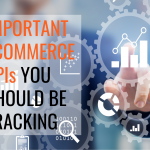If you’d like to get your business up and off the ground quickly, one of the best ways to do this is by buying a website.
Like all investments, buying a website has the potential for great returns. But in order to ensure your purchase is a profitable one, you’ll have to plan ahead, ensure that you find a good one, and run the numbers to see how it fits into your overall business strategy.
Buying a website, ready to go, can help you to jumpstart your ecommerce business. In this article, we’ll be talking about the things you need to know before buying a website as well as some tips on how to go about the purchase and the initial steps to take when buying.
Let’s dive in now.
Starting a Site From Scratch Versus Buying a Website
These days, starting a website is relatively easy and affordable. So you might be wondering why people would go through the hassle of purchasing a website instead of just starting a new site from scratch.
Well, there are a few reasons.
For one thing, launching a website and building a business from scratch is time-consuming. If you want to set up a new online business website or a personal site, you’ll have to look through a reliable domain registrar, find a domain name that’s not been taken, and go through the domain registration process. And that’s just the beginning.
After you buy a domain name, you’ll have to look for web hosting services and a web hosting plan. A well-designed website is crucial if you want customers to trust your site and brand. To do this, you might also have to bring in web designers and developers.
In addition to the time savings that buying a ready to go website offers, here are a few more reasons why people buy websites instead of building them from the ground up:
- Domain Authority: An existing website with a great backlink profile and domain authority (DA) can send links and help build the DA or ranking of your own existing website.
- Existing Audience: Building a website is (relatively) easy, but growing an audience is another story. Finding your first 10,000 visitors is difficult, but going from 10,000 to 50,000 is less challenging when you’ve already built a reputation and a following. For entrepreneurs, taking over existing websites is a huge time-saver. Existing websites already have a built-in audience and online assets such as email lists, a reputable brand, regular traffic, and for ecommerce stores, they often an already established customer base as well.
- A Good Domain: The website might have a catchy, memorable domain name or the web address contains their business name. Domain name extensions matter, too. In most cases, you’ll want to go with .com, but there are exceptions to this. When choosing your extension, you’ll need to consider your audience’s location and what they are likely to search, whether it can be branded along with your business name, and whether it adds to your authority or makes you look unprofessional. Sometimes, .org or .net might work better. You’ll also want to consider buying up your domain name with different extensions and redirecting them to your site.
- Relationships With Suppliers: Existing ecommerce websites already have their suppliers, dealers, and vendors. You can continue these deals and contracts when you purchase the website instead of having to start looking for new ones.
- Customer Base and Sales Data: When you are buying a business, you already have a pretty good understanding of the cost per acquisition of new customers, average order value, and lifetime value of a customer. The products hopefully already have a solid reputation and a customer base you can leverage
What Type of Websites Should You Buy?
The type of website you invest in will depend on your business goals.
In general, people who purchase websites are on the lookout for:
- Websites with high traffic and high income. OR, if you’re looking for a great deal, then try to find a website with potential. This could mean either high-income, low-traffic, or websites that are high-traffic but low income. Things that you can improve.
- Community-driven niche websites where people exchange ideas on a certain topic. If it’s relevant to your niche, this could be a good way to get the conversation going around the products that you’re selling.
- Websites with a solid domain name that ranks well for competitive keywords
10 Things to Check Before Purchasing a Website
Buying websites is a business move that online entrepreneurs can profit from if they know what they’re doing. In fact, there’s a whole industry out there that’s doing this already. Website Flippers, like house flippers in real estate, hunt for smaller, existing websites with untapped potential. They do some work on it and sell it for a profit. Examples of these are websites with great concepts but poor execution and digital marketing.
Whether the goal is to use the website to bring in traffic to an ecommerce site or to flip it in five or ten years, the things you have to look into are similar. These are:
Site History
Looking into the site’s history gives you insights into its ownership, stability of traffic and revenue, and its reputation. Find out how long it has been running and what its reputation is like. You don’t want to take over a website that’s previously linked to underground activities or a spam site. Also, try to find out the reason why it’s being sold.
Platform and Site Infrastructure
You need to know how easy or difficult it will be to edit and maintain the website. Is it on WordPress or Wix? HTML or CSS? This will also help you to determine if you need to hire people who are experts on the platform the site is built on.
Backlink Profile and Domain Authority
Not all backlinks are created equal. As Neil Patel says, “Links from high-quality, relevant sites are far more valuable than links from random sites in another industry. Links from spam sites can actually hurt your website.”
More isn’t always better, especially if they’re links from spam or irrelevant sites. High-quality backlinks improve SEO and help boost search engine rankings. It sends a signal to Google that a website is trustworthy. It’s a valuable metric and Google makes sure it maintains its integrity by looking out for and punishing sites that use link schemes or other black hat SEO tactics.
To look into a site’s backlink profile and domain authority, you can use tools from Ahrefs’ Authority Checker, and the MOZ Link Explorer.
(Source: Moz)
Audience and Traffic Quality
For some entrepreneurs, website traffic is more precious than revenue. When purchasing a website, look for one that appeals to your target demographic and whose audience is potential customers for your business. Look at the source of traffic for each demographic. Is the traffic valuable for your business?
Check for trends such as the most visited pages and time on site. Watch out for dips, spikes, and other outlier information as these can be indicators of problems, or on the positive side, a good result of marketing tactics. Spotting them right away lets you know if the anomalies have a significant impact and if they require attention
Marketing Strategies Used
Buyers also have to understand how the website gained its audience. You’ll have to check to see if you can easily replicate their tactics in order to attract new visitors. Is their SEO fine-tuned and optimized for user experience? Did they invest in email marketing? Did they attract visitors through a social media presence? In order to stay competitive, you have to consider if you can continue replicating their strategies to keep the audience.
Initial Costs
Know if you’re getting a fair price for the website. Website prices depend on the type of website, uniqueness of domain name, technical design, and performance. They can range from several hundred up to thousands of dollars. Be suspicious about great-looking sites that sell for very low prices.
It could be a scam or have hidden charges that will shock you later on. There are tools like Empire Flipper’s Valuation Tool, Siteworth Traffic, and Flippa’s Free Valuation to help you check if the website is priced fairly.
Revenue and Conversion Rates
If you’re looking to buy a revenue-generating website, ask to see the website’s financial records and conversion rates. Keep an eye out for consistent cash flow and a solid business plan. If the site is losing money, don’t call it a lost cause. Look at potential instead and see if you can modify and fix up where the owners are falling short.
But don’t get caught up if a site shows huge gross merchandise volume (GMV) figures. This figure is calculated before deducting expenses, so you don’t know how much the business expenses are. Website vendors and brokers like highlighting turnover figures because they look impressive.
While purchasing a website that makes $500,000 a year is tempting, be sure to look beyond GMV. Profit is the metric you want to look at. You should make an offer based on how much money the website makes at the end of the day after all the fixed and variable costs are taken out.
Get our How Do You Purchase a Website for Your Ecommerce Business_ - Worksheet delivered right to your inbox.
Domain Name Value
You’ll want to find the perfect domain name that resonates with your business. A good domain name has the power to attract the right audience and keep you on the top of their minds. Look into buying a website with a great domain name to match your business or project. Check how much an existing domain name is worth in the market on websites like Siteprice.org, Estibot, and Freevaluator.
Quality of Content
Ideally, the site will already contain high-quality content that you can immediately leverage for traffic, backlinks, and discovery in search engines. Copyright and trademark infringement are also other things to watch out for. Examine and ask about the originality of all text and images and see if everything is credited as required.
Tip: You could also run some of the content through a plagiarism checker, like Grammarly, just to double check that everything’s original.
Relationship With the Owner
Like any business dealing, good rapport with the owner makes for a seamless transaction that carries over even well after the purchase. A good relationship makes it easier for them to be more transparent about the website history and all the records and data that you’ll want to look into. And in case of maintenance issues in the future, you’ll be able to freely communicate with the owner.
Where to Purchase a Website
So how do you start the process of purchasing a website? These are the two most common ways to buy a website:
Website Auctions or Marketplaces
Websites like Flippa, Deal Flow Brokerage, Website Broker, and Empire Flippers are marketplaces where you can purchase websites and online businesses that are for sale. The listings are straightforward and provide details like the description, list price, revenue, and income. Other detailed information such as financials, traffic, and seller notes are also available if you create an account on their sites.
Most of the purchases are done auction-style, letting buyers bid on the sites. They also offer buyer protection, a support team, and escrow services.
(Source: Empire Flippers)
Private Sales
A buyer spots a website with potential, directly approaches the owner, and asks if they’re willing to sell. If the owner says yes, that’s when the two parties can start discussing terms and the price.
Buying a Website: FAQs
1. Can you permanently buy a website?
No, you cannot permanently own a web domain because essentially there is nothing to own. A web domain is instead something you rent.
Domain name registration is usually carried out on a yearly basis, however, you can also choose to pay upfront for longer registration periods, such as ten years, which will guarantee you have that domain name for the selected period.
2. Is buying a website a good idea?
As covered in this article, there are plenty of advantages to buying a website. However, at the end of the day, it comes down to your own business goals.
If you’re wanting a website that already has high traffic, an existing audience, and ranks well, then buying a pre-existing website may be a great option for your business.
3. How do I purchase a website?
The most popular method when buying websites is through online auctions or marketplaces, such as Website Broker and Flippa, which provide buyers with detailed information to help inform their purchasing decision.
However, another option that many businesses opt for is private sales. This usually involves a business directly approaching another business or website owner and the two parties coming to an agreement.
4. What is website flipping?
In a nutshell, website flipping is the practice of acquiring a website, increasing its income to make it more valuable, and then selling it for a profit.
Website flipping involves a great deal of practice and skill, such as a good understanding of SEO, content creation, and monetization, and if done right, can be incredibly profitable.
5. Is it profitable to buy websites?
Yes, buying a website can be profitable, and is often the reason why businesses purchase sites (as is the case with website flipping).
However, a website will only be profitable if the decision has been made with careful consideration. To ensure you’re setting yourself up for success, be sure to consider the site’s history, its backlink profile, domain authority, and more.
The Next Steps: Picking the Perfect Website for Your Business
After diving into all the details, evaluate the website’s stability of income and traffic, its worth, and identify possible risks. Revisit your goals to see if you’ve found the right website that’s a match for your business. Take these next steps to make sure all goes well:
Step One: Verify Site Ownership and History
There have been cases of people gaining control over a website in a suspicious way and selling it. Use a tool like Icann Look Up or WHOIS History to check ownership history and see if there’s anything that looks suspicious. They can show changes and alterations, making it easy to spot suspicious events. To find out what a website used to look like, you can check the archives at Wayback Machine.
Step Two: Know Exactly What You’re Getting
A website comes with many other digital assets. Sometimes, the owner only sells the domain name and not the business associated with it. You should also discuss ownership of the content and email lists. You might need to hire a lawyer and draw up a contract to make sure you’re protected and all the terms and conditions are clear, especially if you’re buying directly from the owner.
To add another layer of legal protection, opt for an escrow service, where a third-party representative holds onto the funds until all the preliminary preparations and checks for the sale are completed.
Step Three: Consider Asking for a Trial Period
Consider asking the website owner for a trial period or a “support period” at the beginning, where the owner can be available in case there are any problems with the website. If you go through an escrow service, you can ask to include a testing phase to make sure everything runs smoothly before the release of the funds.
Now that you know how to purchase a website, it’s important to remember that there’s more work after. To make the most of your investment, continuous maintenance is needed to make sure it helps further your business goals. You might have to run social media and email marketing campaigns to promote your website and build an audience.
Understanding web design, search engine optimization, and content creation are also important things to learn to stay competitive.
Looking for strategies to scale your ecommerce business? Reach out now for your FREE 20-minute consultation call. Let’s find the best solutions to grow, and fast.
Get our How Do You Purchase a Website for Your Ecommerce Business_ - Worksheet delivered right to your inbox.






